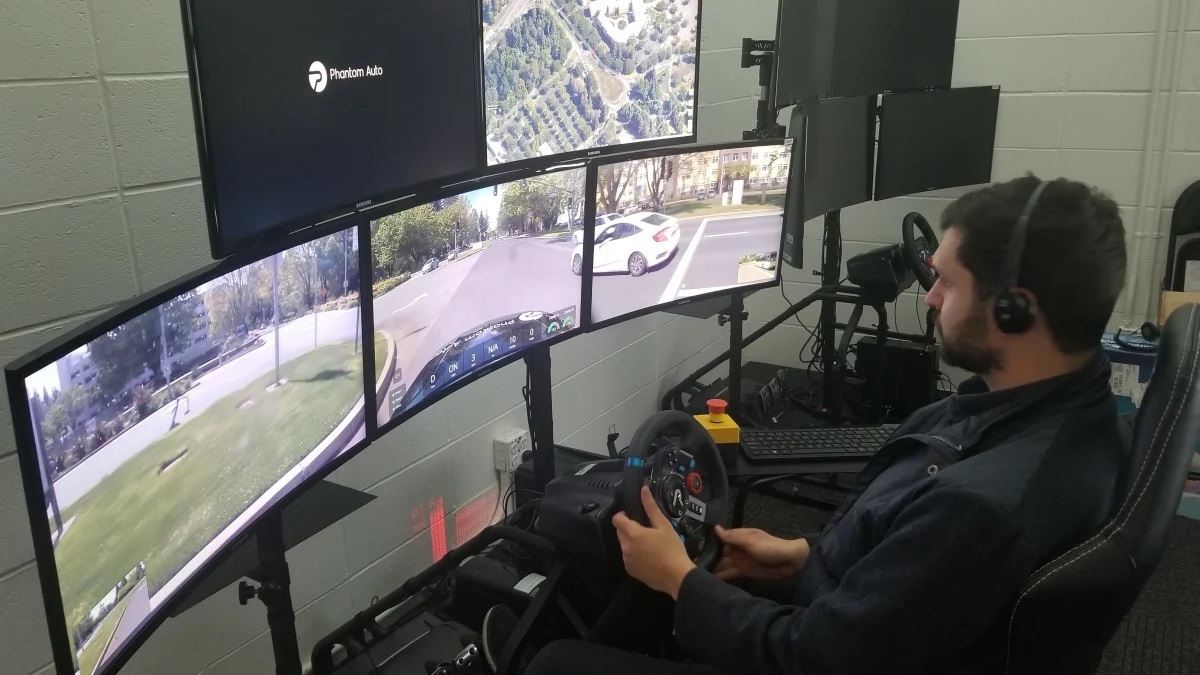
Phantom Auto’s seven-year journey in remote driving technology culminates in closure due to funding challenges despite garnering $95 million in investments. The company’s pioneering teleoperation platform aimed to reshape the future of mobility, but the volatile landscape of autonomous vehicles led to its demise. Despite pivoting towards logistics applications, Phantom Auto ultimately succumbed to the harsh realities of the market. Its closure serves as a sobering reminder of the unpredictable nature of technological innovation and the formidable hurdles faced by startups in the autonomous vehicle industry.
Phantom Auto, a pioneering force in the realm of remote driving, has reached an unfortunate conclusion to its seven-year journey, signaling the closure of its operations due to the inability to secure essential funding. Despite garnering a substantial total investment of $95 million, the company’s ambitious endeavors have encountered insurmountable challenges, ultimately leading to its demise.
Founded amidst the fervor surrounding autonomous vehicle technologies, Phantom Auto distinguished itself by developing an innovative teleoperation platform. This platform empowered remote drivers, situated even thousands of miles away, to control vehicles as required, offering a promising solution to various mobility challenges. The company’s roster of supporters included a diverse array of investors, ranging from angel investors to esteemed venture capital firms like Bessemer Venture Partners and Maniv Mobility, alongside strategic investors such as ArcBest and ConGlobal. Despite this robust backing, Phantom Auto’s last fundraising effort in 2023, amounting to $25 million, proved insufficient to sustain its operations.
The recent attempt to secure additional funding, which seemed promising, ultimately faltered unexpectedly, dealing a significant blow to the company’s prospects. Despite reaching the cusp of success, the unpredictable nature of the funding landscape rendered their efforts futile. At its peak, Phantom Auto boasted a workforce of approximately 120 individuals, yet recent downsizing efforts had reduced this number to just over 100 employees by the time of its closure. Situated in South San Francisco, the company’s presence was a testament to the region’s prominence in technological innovation.
Phantom Auto’s unfortunate fate echoes a broader trend within the autonomous vehicle industry, where startups emerged amidst considerable hype, only to face the harsh realities of market challenges and funding constraints. Initially buoyed by optimistic projections and substantial investments, the industry’s trajectory shifted as deployment timelines for autonomous vehicles and robotaxis extended beyond initial estimates. The subsequent wave of consolidation, shutdowns, and strategic pivots underscored the formidable obstacles that awaited those vying for success in this dynamic landscape.
Shai Magzimof, the founder and CEO of Phantom Auto, took to LinkedIn to announce the cessation of operations, citing market conditions and inadequate funding as primary factors contributing to this decision. Expressing gratitude to the company’s stakeholders, including employees, investors, customers, and partners, Magzimof acknowledged the challenging circumstances while affirming his commitment to supporting the displaced workforce in their pursuit of new opportunities. As the company bids farewell, its talented pool of individuals seeks to navigate an uncertain job market, with Magzimof offering assurances of providing references to facilitate their transition.
Despite demonstrating traction on the customer deployment front, Phantom Auto remained dependent on external funding to sustain its operations and realize its scaling ambitions. The company’s journey began in 2017 with a focus on integrating its teleoperation technology into autonomous vehicles destined for public roadways, including robotaxis and self-driving trucks. However, recognizing the protracted timeline for large-scale commercial deployment of driverless vehicles on public roads, Phantom Auto pivoted its strategy in 2019.
Shifting its attention towards logistics applications, particularly forklifts, yard trucks, and autonomous sidewalk delivery robots, Phantom Auto identified a niche market characterized by low-speed operations within confined environments. Securing customer agreements with industry stalwarts like Maersk, CJ Logistics, and ArcBest, alongside emerging players like Serve Robotics in the realm of autonomous sidewalk bots, Phantom Auto appeared poised for success in this revised trajectory.
